Junior Geologist Lab Report
by John Weidner, MSDC Treasurer
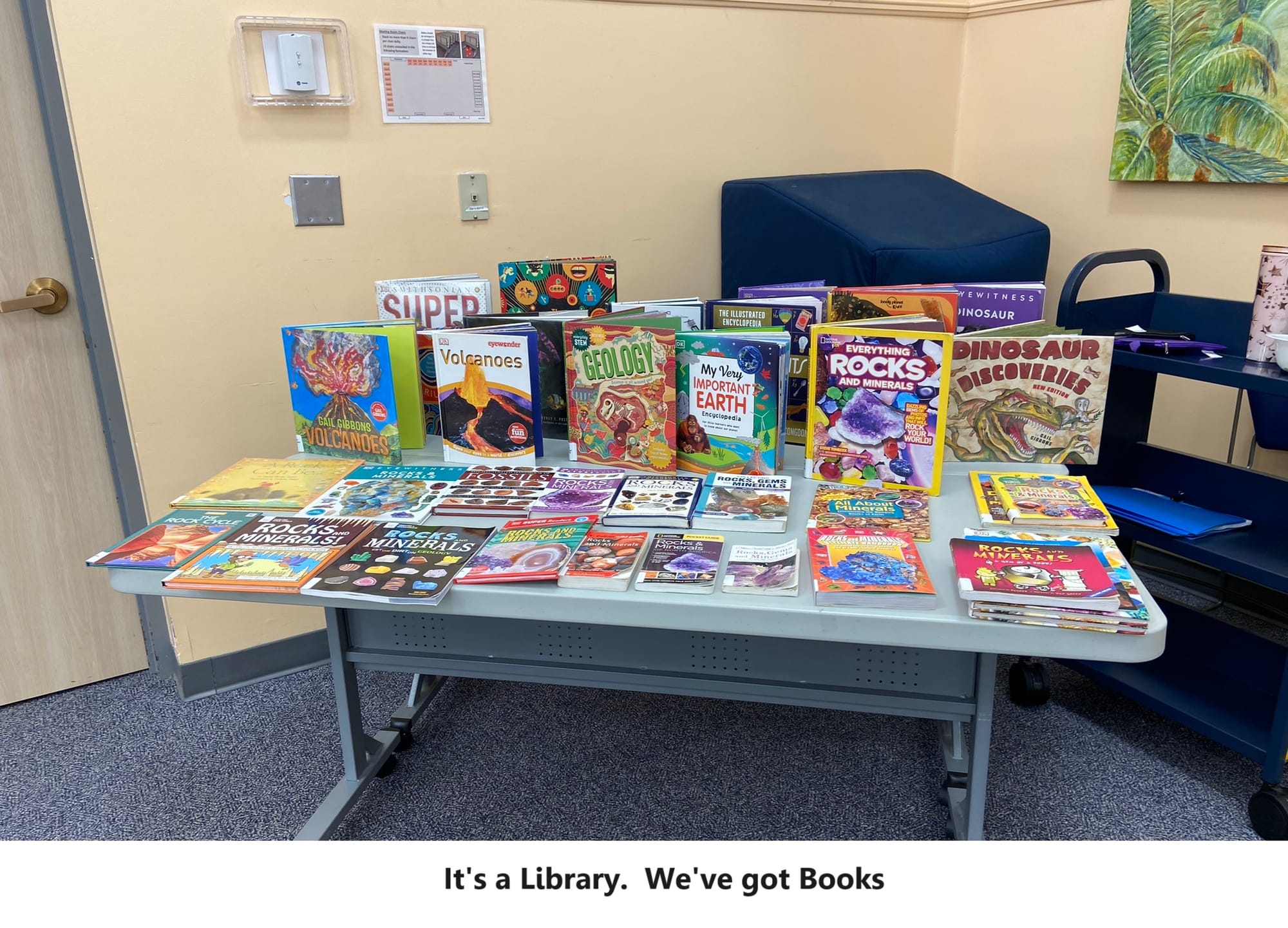
Success!
The kids came. They brought rocks. We got to talk to the kids about their rocks. What a wonderful afternoon! Kings Park Library’s first Junior Geologist Lab event was held on Jan 25th. It was successful. It was beyond successful.
Define success? Success means everyone had fun.

Our primary activity was to talk to the kids about rocks they brought in. “Us” was seven MSDC members: Craig Moore, Germaine Broussard, Dave Nanney, Bob Cooke, Susie & John Weidner, and Kendall Hall, from the library staff. We were there to talk to the kids, look at their rocks, show them how to use the microscope, talk about the display rocks, and whatever else occurred to us. There was no formal program and no presentation. Just a bunch of rock lovers of all ages standing around and talking about rocks. Can you think of a better way to spend an afternoon?
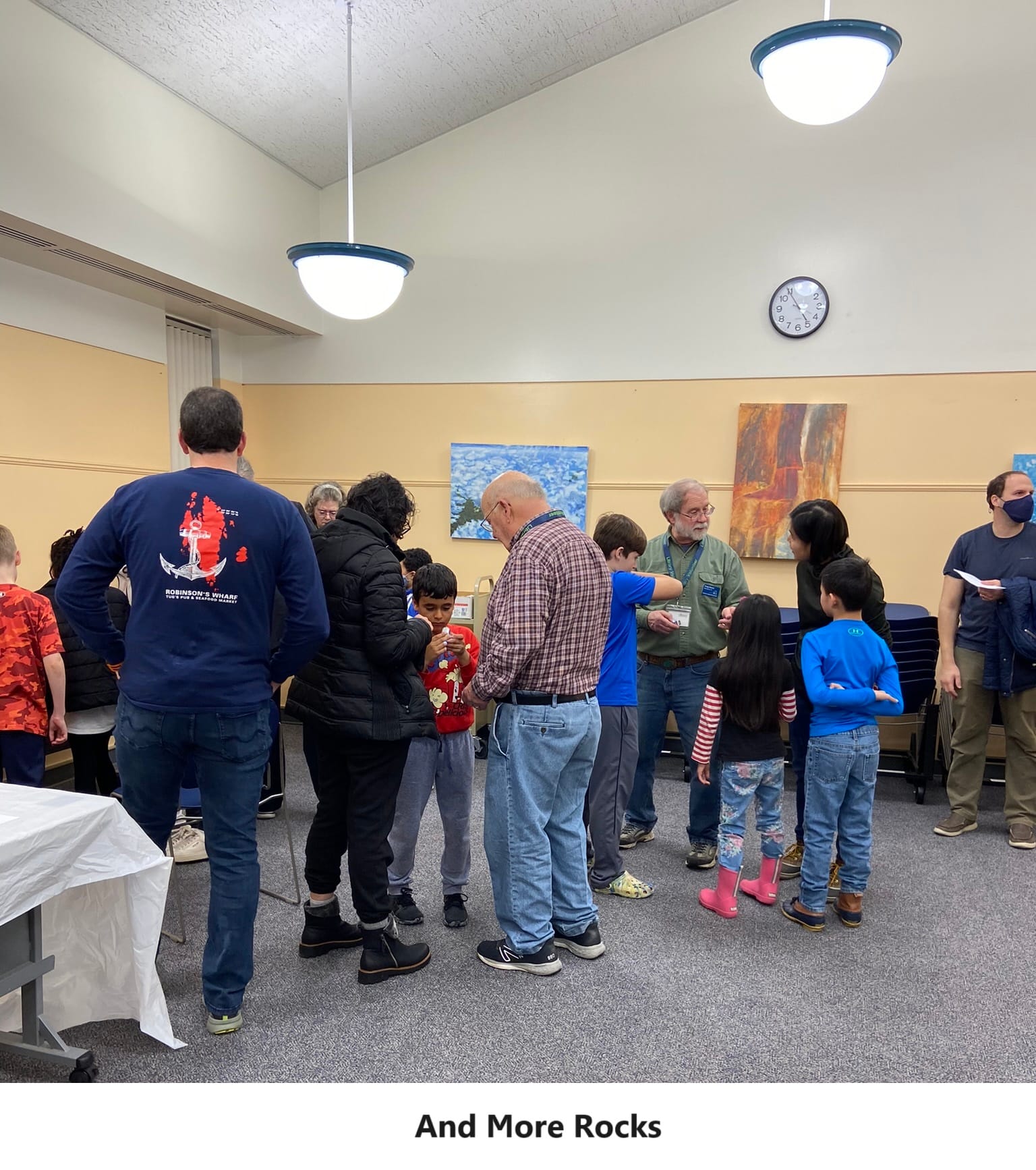
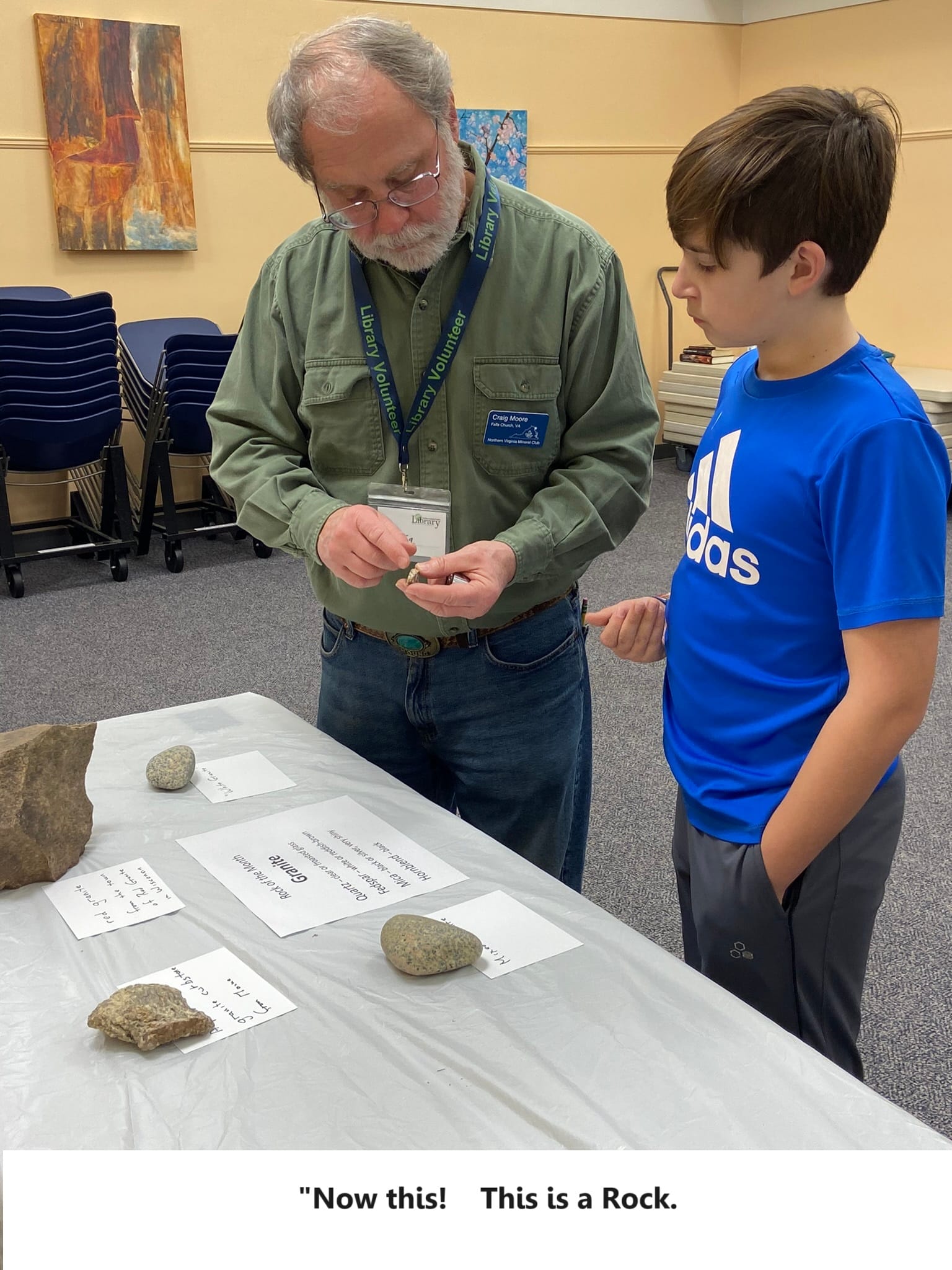
Thirty-three people came, counting kids and parents. We had a display of library books on geology, available for checkout. About a third of them got checked out during or after the meeting.
We had a coloring station: pictures of fossils, dinosaurs, and rocks, with crayons and colored pencils for the kids (and parents). We had quizzes, puzzles, and crossword puzzles to fill spare time. We had one of the new microscopes, one that sends the image to a computer screen (see microscope article in this issue of the Mineral Minutes). We had rocks and fossils on display, including granite, our rock of the month.
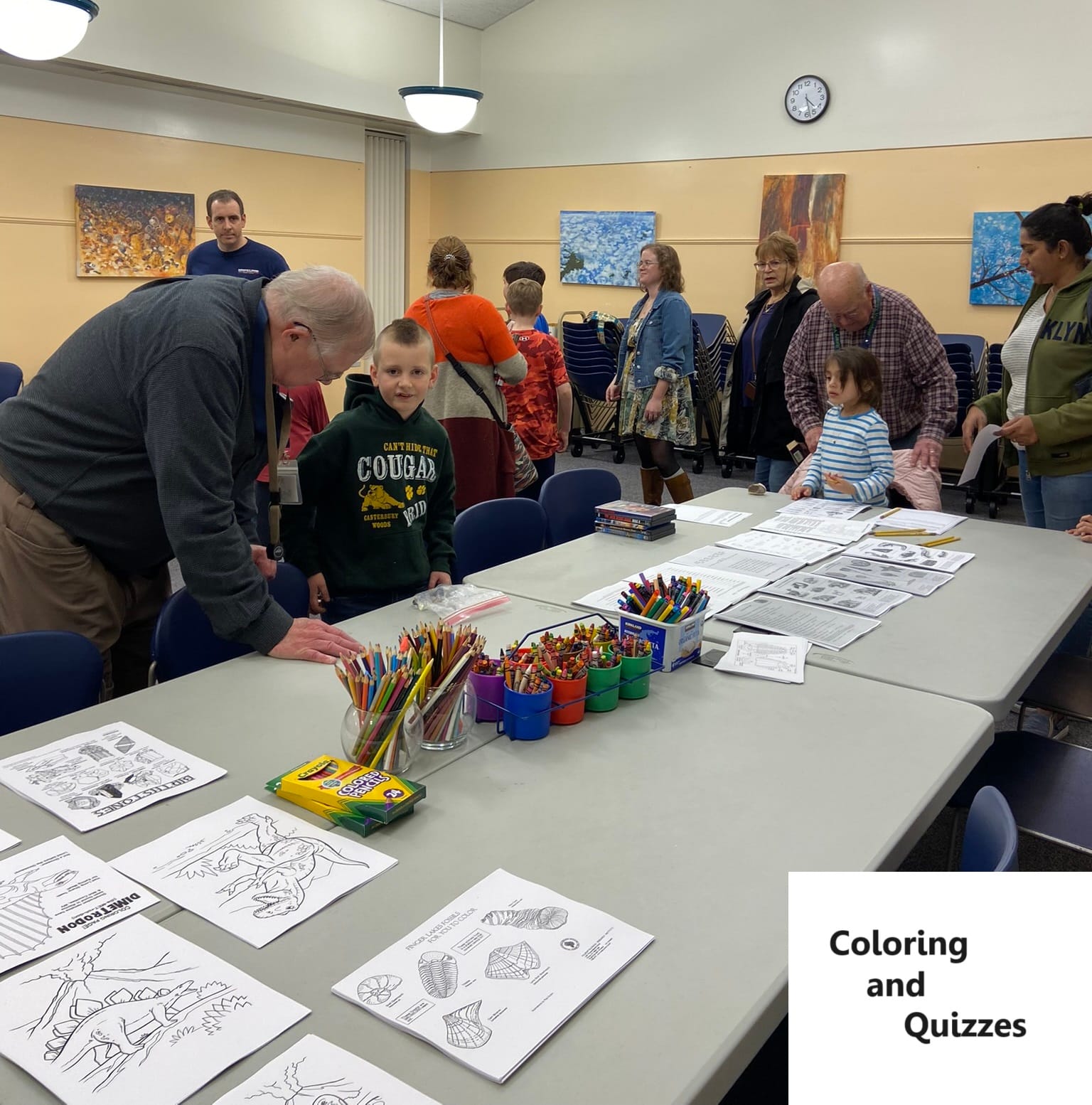
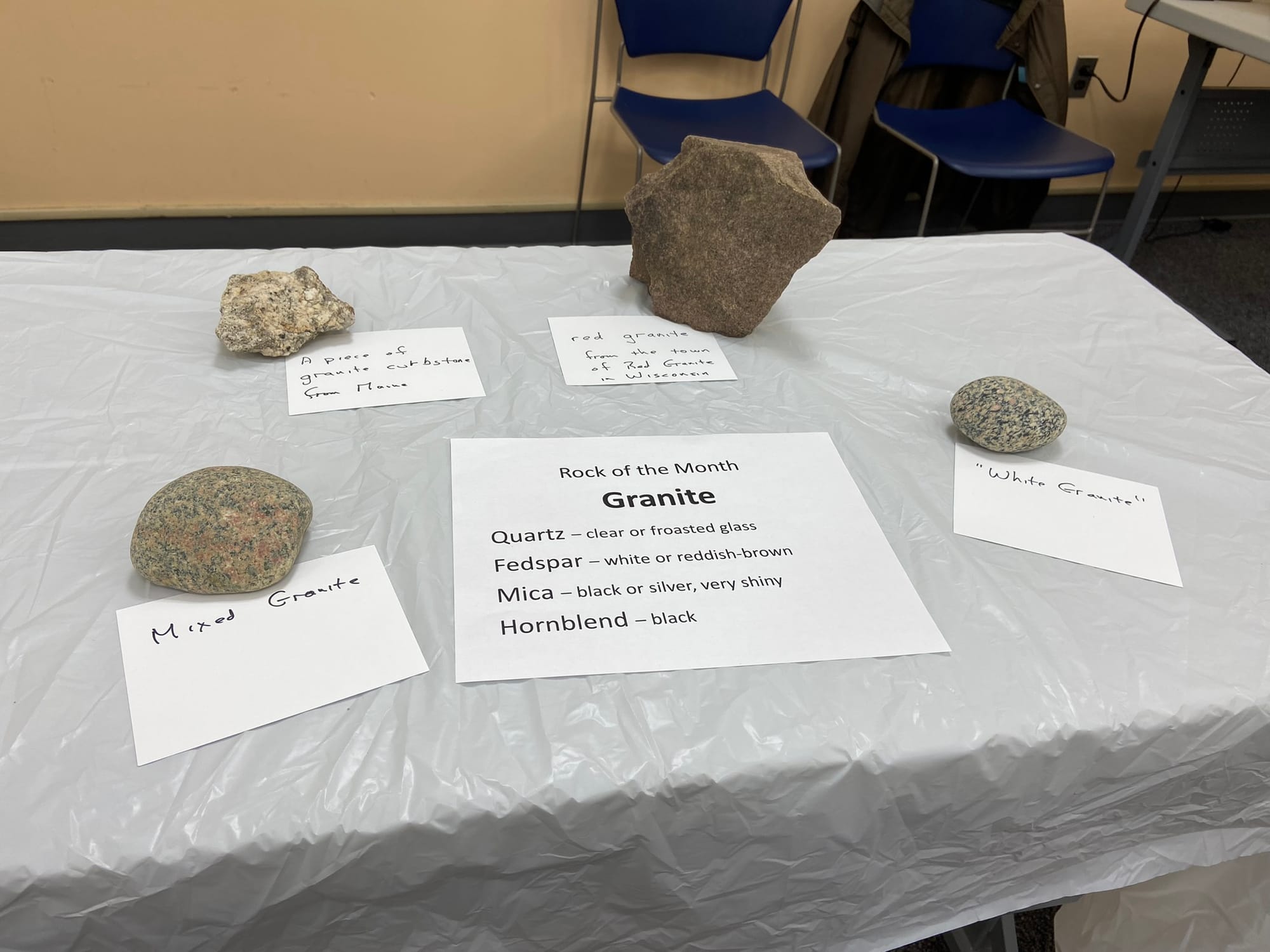
But the heart of our event was identifying rocks the kids brought in. Any kid who brought in a rock and filled out the description sheet got a Junior Geologist Badge. I should have counted how many we handed out – quite a few.
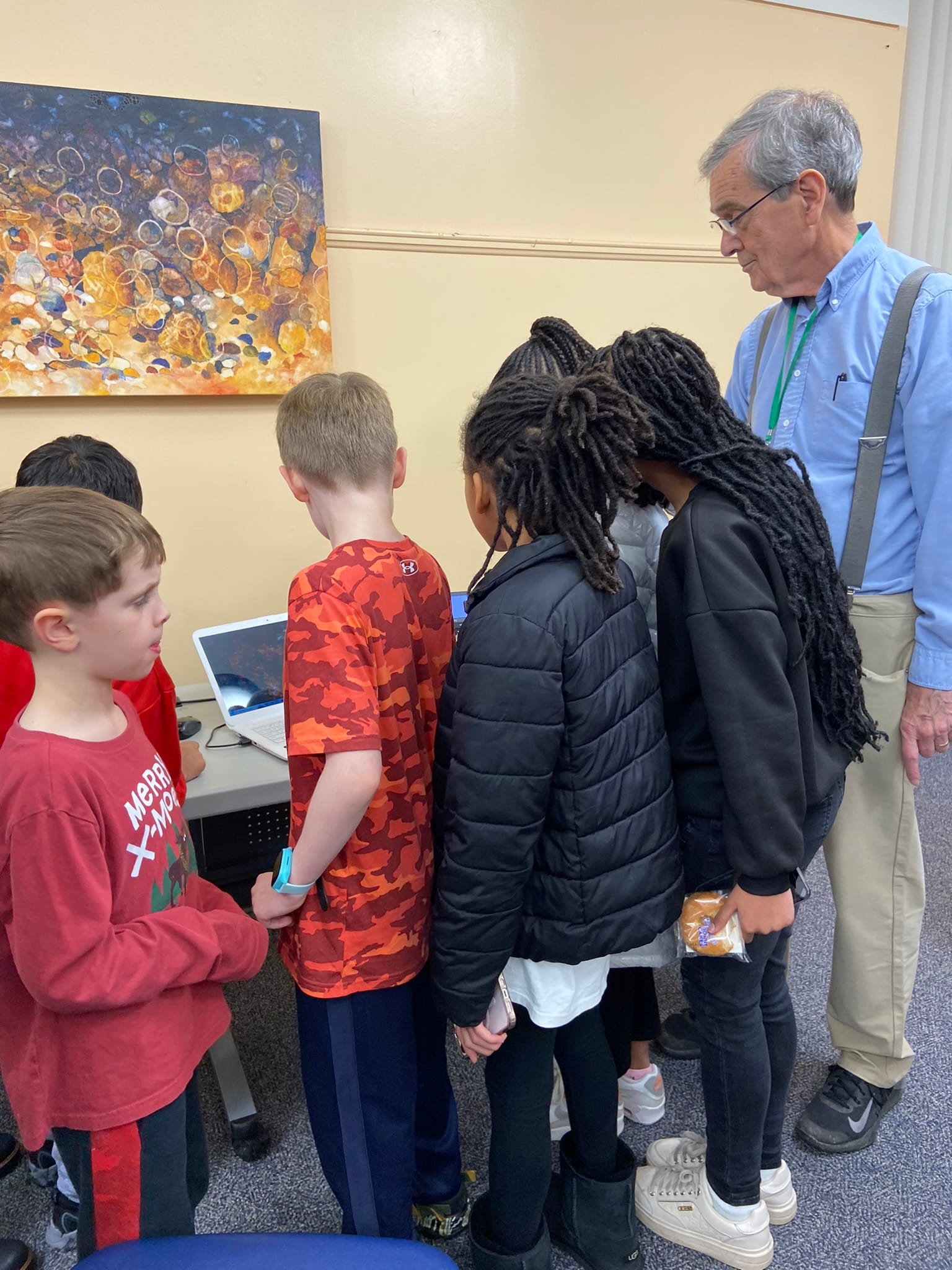

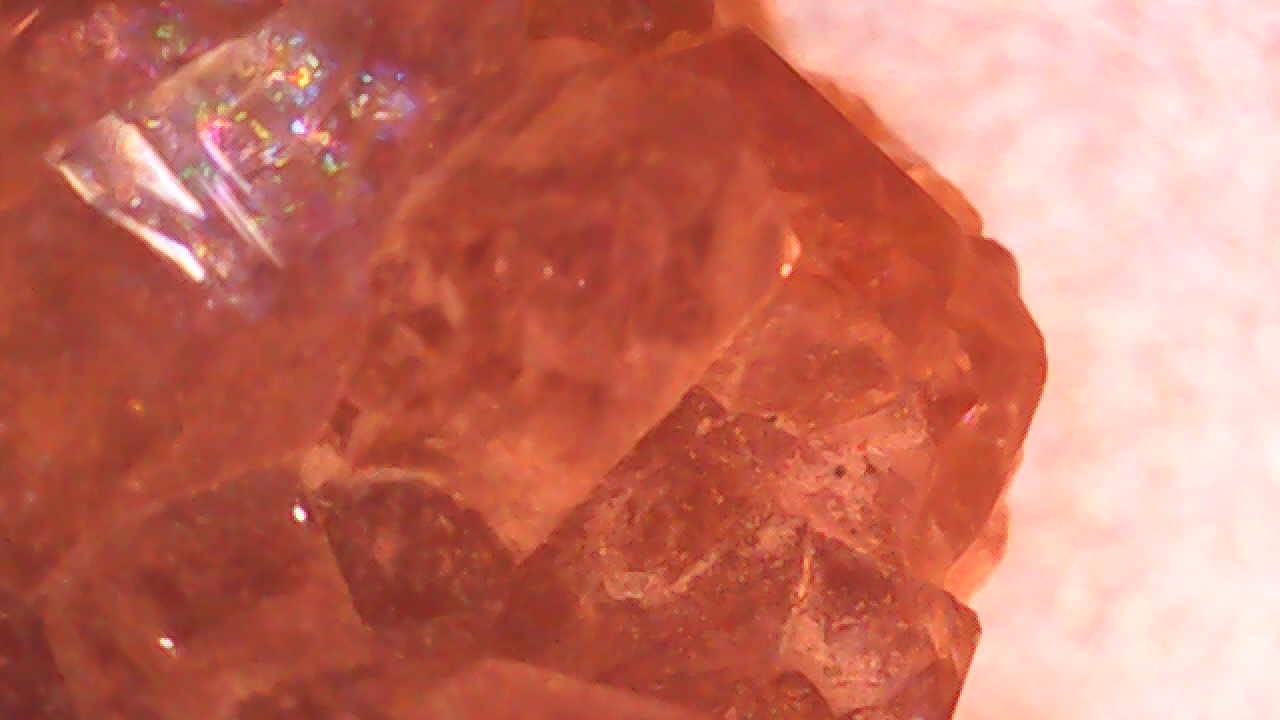
An indication of the interest in an event like this is that, as I spoke to one mother who was coloring a dinosaur picture with her young daughter, she reached into her purse, pulled out two rocks, and asked me what they are. (A flint module in a chalk matrix, and chert in the same chalk matrix.)
So here’s the challenge for you. Set up an event like this. It’s easy! Your library would love to sponsor it. They are looking for STEM activities. You have the rocks to show. You have the expertise. And please notice, the kids want to talk about their rocks. Even if you don’t know what it is, they love it. You don’t have to be able to give absolute authoritative answers to each rock. That’s not how science works!
Let’s get more of these rock identification events going, all over the country!
